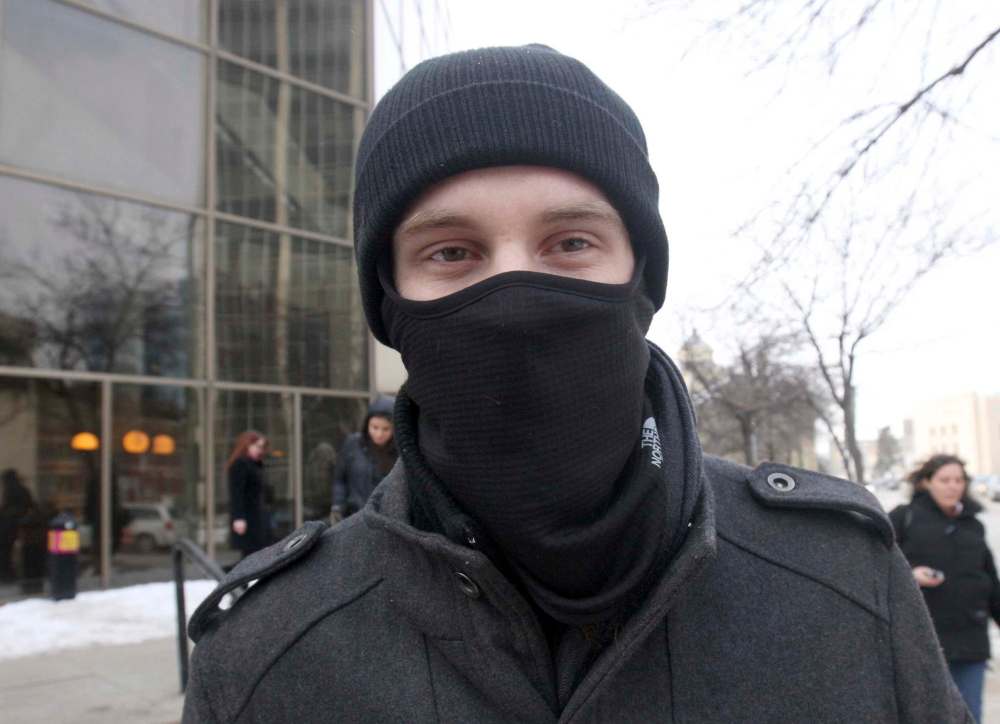Balancing rights versus safety
Driver case part of debate on need for balance
Advertisement
Read this article for free:
or
Already have an account? Log in here »
To continue reading, please subscribe:
Monthly Digital Subscription
$1 per week for 24 weeks*
- Enjoy unlimited reading on winnipegfreepress.com
- Read the E-Edition, our digital replica newspaper
- Access News Break, our award-winning app
- Play interactive puzzles
*Billed as $4.00 plus GST every four weeks. After 24 weeks, price increases to the regular rate of $19.00 plus GST every four weeks. Offer available to new and qualified returning subscribers only. Cancel any time.
Monthly Digital Subscription
$4.75/week*
- Enjoy unlimited reading on winnipegfreepress.com
- Read the E-Edition, our digital replica newspaper
- Access News Break, our award-winning app
- Play interactive puzzles
*Billed as $19 plus GST every four weeks. Cancel any time.
To continue reading, please subscribe:
Add Free Press access to your Brandon Sun subscription for only an additional
$1 for the first 4 weeks*
*Your next subscription payment will increase by $1.00 and you will be charged $16.99 plus GST for four weeks. After four weeks, your payment will increase to $23.99 plus GST every four weeks.
Read unlimited articles for free today:
or
Already have an account? Log in here »
Hey there, time traveller!
This article was published 12/08/2016 (3354 days ago), so information in it may no longer be current.
OTTAWA — In January 2015, when then-prime minister Stephen Harper was introducing new, controversial anti-terrorism measures, he noted freedom and security are not mutually exclusive things.
“Canadians expect us to do both, we are doing both, and we do not buy the argument that every time you protect Canadians, you take away their liberties,” Harper said.
The problem, then and now, is there is a delicate balance between the two and it is almost impossible to agree on where to draw the line.

Many times, this debate is theoretical in nature, but with the case of Aaron Driver, it was real life.
In June 2015, Driver was arrested and detained in Winnipeg and authorities claimed they had real concerns he would participate in or contribute to a terrorist attack. He had broken no laws and was not charged with any particular crime, but Driver’s activities had authorities concerned enough they felt limits needed to be imposed on his activities.
He was not allowed to use computers, he was told to undergo religious counselling, and his whereabouts were monitored with an ankle bracelet.
The debate was rigourous and often heated. Was it justified to detain and restrict someone who hadn’t actually broken a law? Was it necessary to restrict his freedoms to protect other Canadians from potential harm? The debate is now laden with more weight, given Driver was shot and killed Wednesday by police in Strathroy, Ont., after the RCMP stepped in with intelligence that suggested he was within 72 hours of carrying out a terrorist attack in a Canadian city.
Although Canadians now know a lot more about Driver and what led the RCMP to arrest him 14 months ago in Winnipeg, we still do not know exactly where to draw the line between individual freedom and collective safety.
In a press conference Thursday in Ottawa, RCMP deputy commissioner Mike Cabana listed some of the intelligence authorities had on Driver ahead of his initial arrest, including his computer contact with known members of the Islamic State and contact with British and American citizens who were later arrested for planning or carrying out terrorist attacks.
For more than six months, Driver and his lawyer worked to fight the conditions imposed on him. In February 2016, he agreed to a peace bond, imposed in Winnipeg, that included lifting the ankle-monitor condition but continuing the requirement he stay off the Internet. He was allowed to live with his sister in Strathroy, in the same house where authorities surrounded him Wednesday.
In recent months, Cabana said, Driver remained on the watch list but not under constant surveillance.
At the end of August, the peace bond condition preventing him from using computers was to expire. Clearly, Driver had been violating that one, given he used a computer to make a video explaining why Canadians deserved to be attacked; the video ended up online and made its way into the hands of the FBI, which led them to tip off the RCMP and, ultimately, led police to Driver’s doorstep.
In the wake of his death, some believe the restrictions imposed by Driver were justified. Since he proved to be a real threat, it must have been worth it. But do we really know restricting his freedoms ended up preventing anything, particularly since police said he was still able to plan an attack? Maybe it helped, but maybe it didn’t.
Canadian authorities are to be commended: they figured out within a few hours of the FBI tip who the man in the online video was. Police perhaps sounded dramatic, but they are not wrong if the assertion that if Driver had gotten out of that house before police got there, the outcome Wednesday could have been very different.
But it still doesn’t answer when it is warranted to restrict individual freedoms in order to protect the freedoms of the collective whole.
And that is as it should be. This debate is too important and too serious to be concluded on the basis of a single case. Or even a dozen cases.
If we do decide we know where that line should be drawn, if we stop debating the balancing of our freedoms, chances are we have gone too far on one side or the other.
Mia Rabson is the Winnipeg Free Press parliamentary bureau chief.
mia.rabson@freepress.mb.caTwitter: @mrabson


